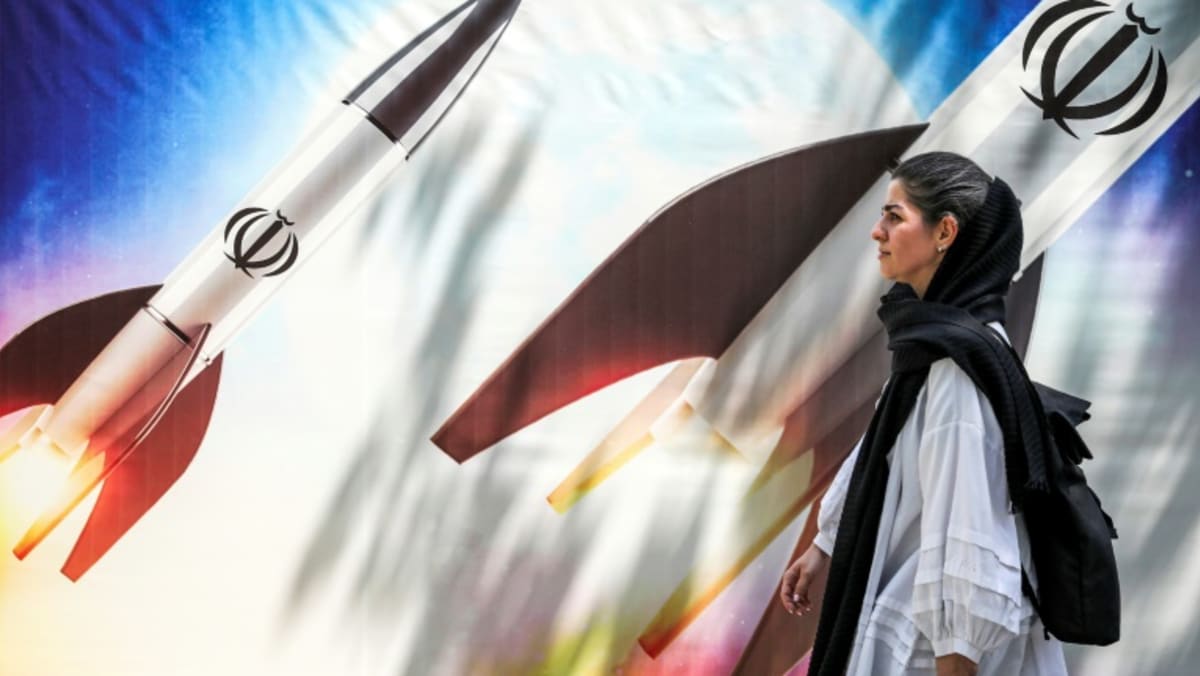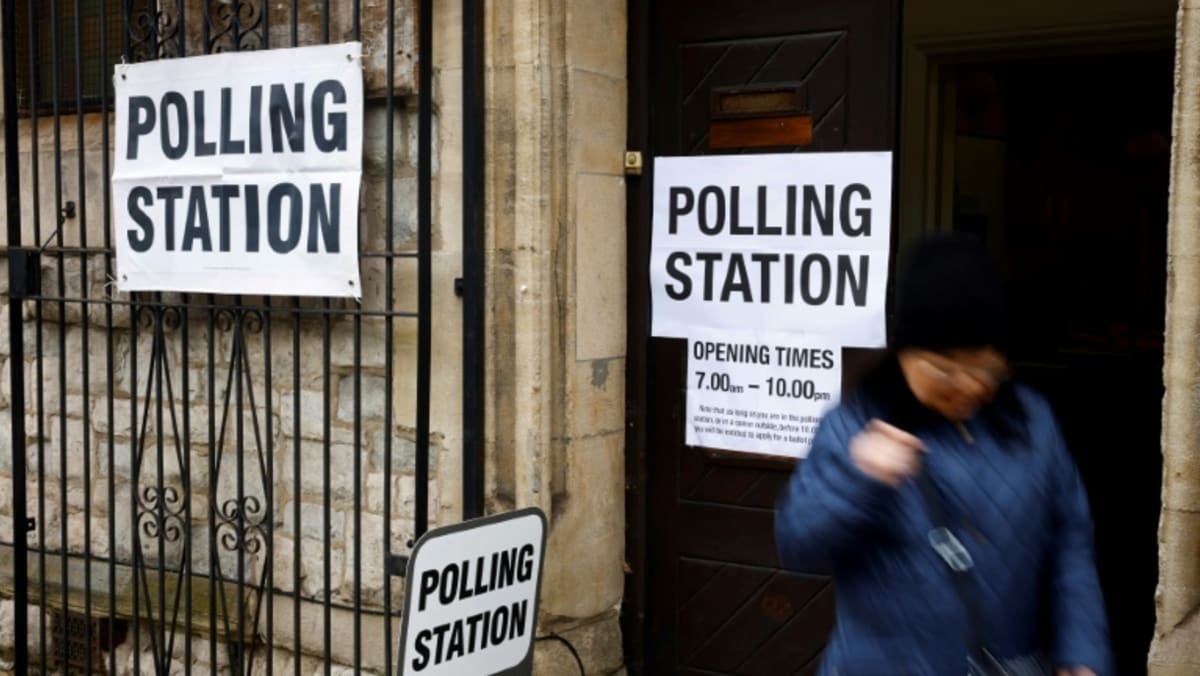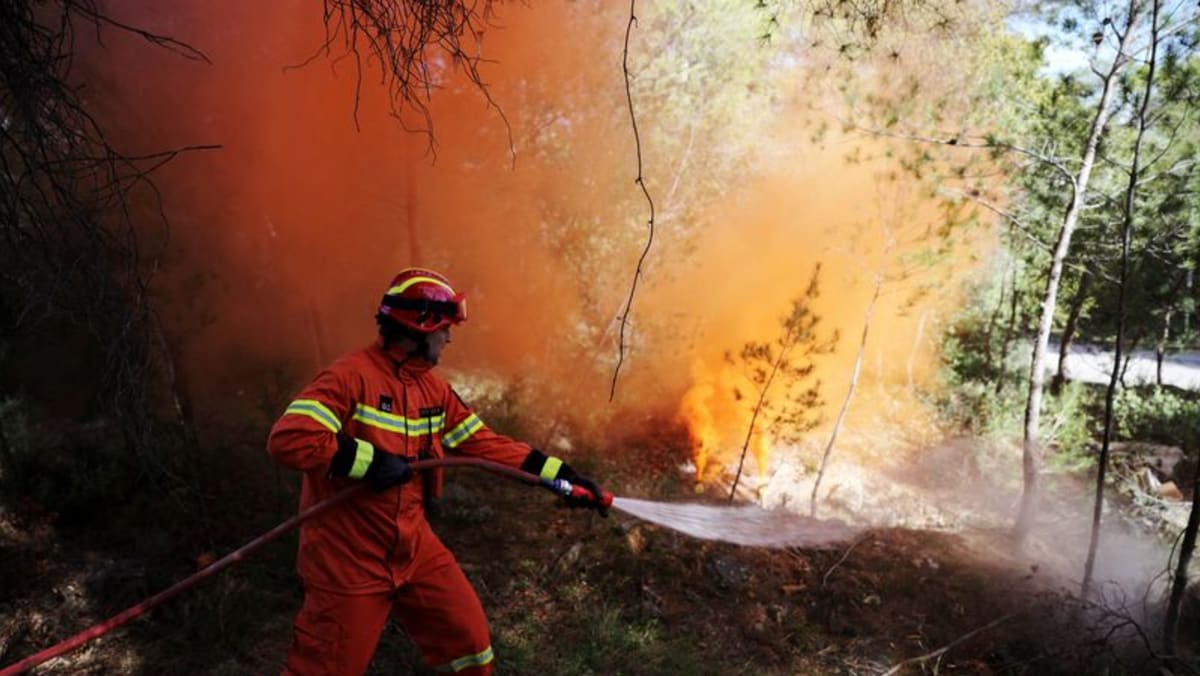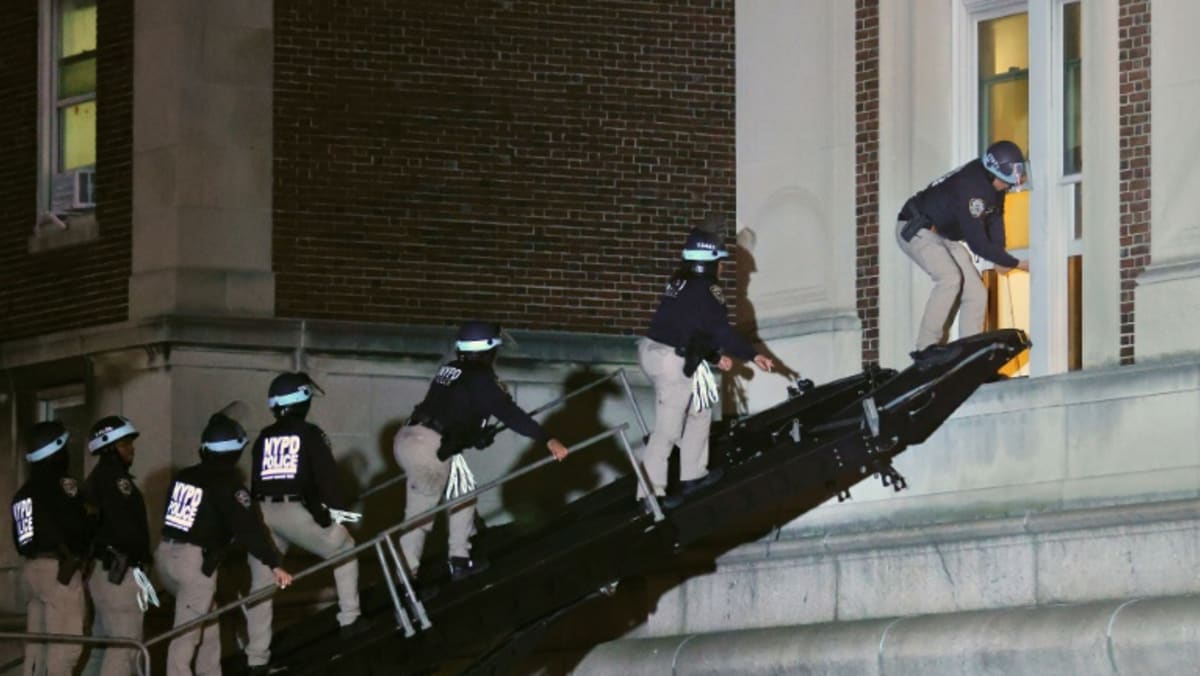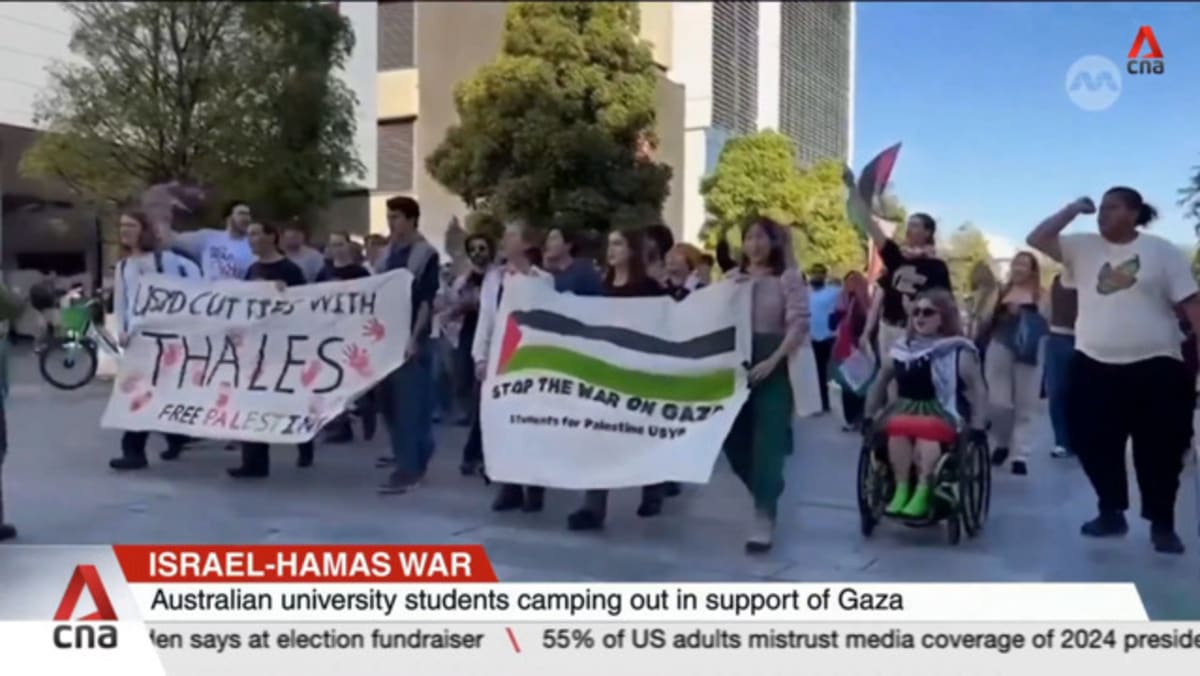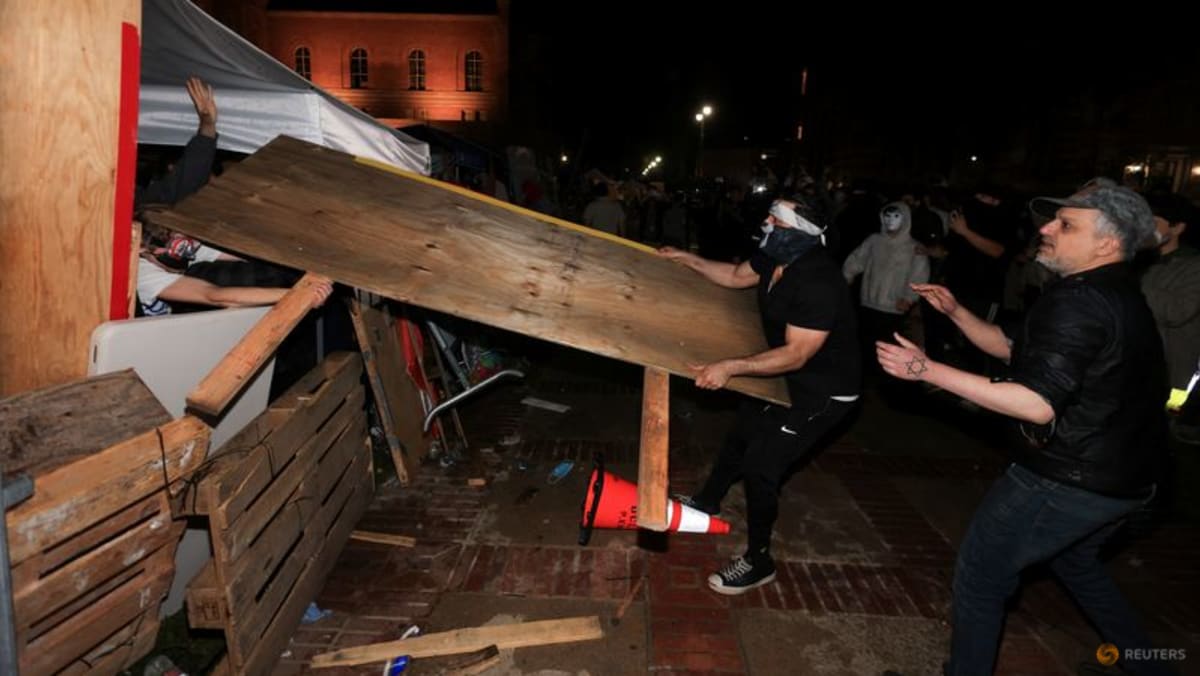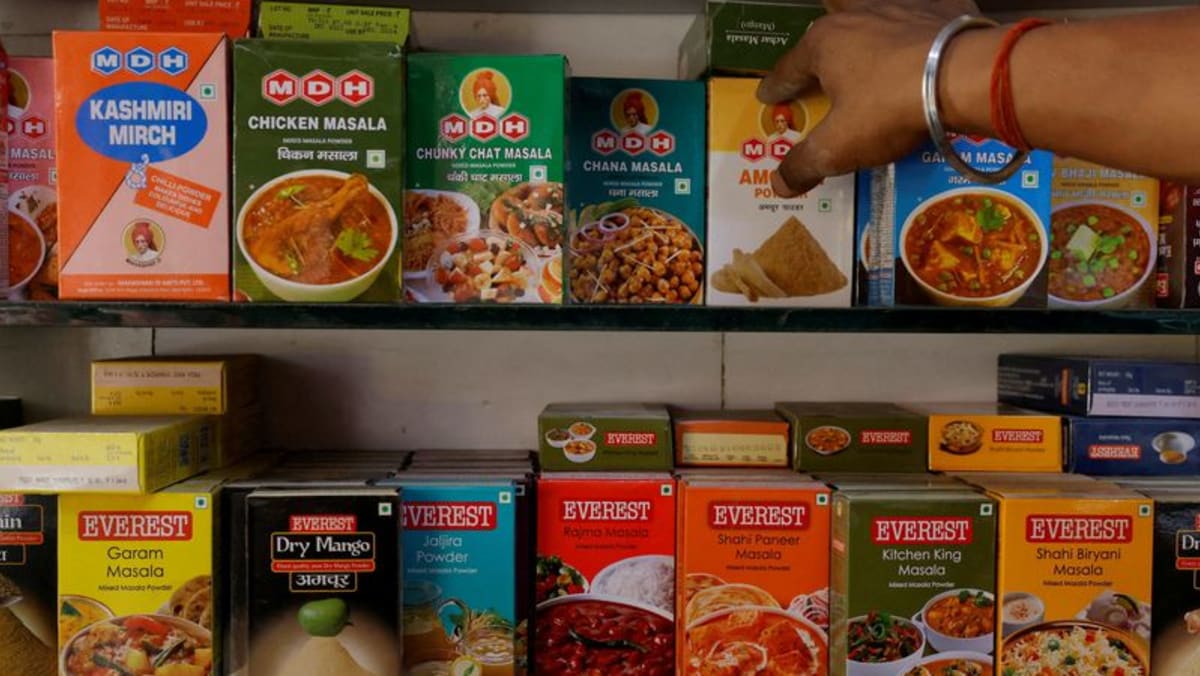HOW DID IRAN RESPOND?
Air defence systems over several Iranian cities were activated, state media reported.
Flights to the cities of Tehran, Isfahan and Shiraz were suspended, as were airports across several parts of the country, according to the Mehr news agency.
Flight-tracking software showed commercial flights avoiding western Iran, including Isfahan, and skirting Tehran to the north and east.
One flydubai plane that had already departed for Tehran had to return to Dubai after the Iranian capital’s airport was closed, the Emirati airline said in a statement.
On Friday morning, Iranian television carried a live feed of normal road traffic at a roundabout in Isfahan, while the official IRNA news agency said “no major damage” was reported after the explosions.
WHY NOW?
Iran-backed armed groups across the region have carried out attacks on Israel since the war in Gaza broke out in October.
Both Lebanon’s Hezbollah and Palestinian militant group Hamas are backed by Iran. But the recent, and direct Israel-Iran exchanges have ventured into unprecedented territory.
In response to a deadly attack on the Iranian consulate in Damascus on Apr 1 widely blamed on Israel, Tehran fired hundreds of missiles and drones at its arch-foe.
Israel had vowed to respond to that onslaught launched on Saturday, which was mostly intercepted and caused no deaths.
Just hours before the explosions were heard inside Iran on Friday, the foreign minister warned that Israel would come to “regret” any attack on his country.
Speaking at the UN Security Council during a meeting on the Middle East on Thursday, Iran’s Foreign Minister Hossein Amir-Abdollahian called the Islamic Republic’s weekend barrage a “legitimate defence” and said Israel should “stop any further military adventurism”.





